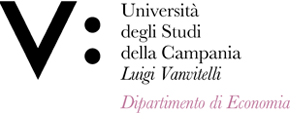Paola GRIMALDI
Insegnamento di DIRITTO DELL'ECONOMIA CIRCOLARE
Corso di laurea magistrale in ECONOMIA, FINANZA E MERCATI
SSD: IUS/01
CFU: 8,00
ORE PER UNITÀ DIDATTICA: 56,00
Periodo di Erogazione: Primo Semestre
Italiano
| Lingua di insegnamento | ITALIANO |
| Contenuti | Il corso si focalizza sull'analisi della normativa nazionale ed europea dell'economia circolare, sui principi guida e concetti chiave della stessa con particolare riguardo a: problematiche del diritto della sostenibilità, rapporti negoziali della economia circolare, sostenibilità e durabilità del prodotto, energie rinnovabili e comunità energetiche. |
| Testi di riferimento | Testi normativi |
| Obiettivi formativi | L'insegnamento si propone di fornire allo studente: |
| Prerequisiti | Conoscenza della lingua italiana, orale e scritta (per studenti italiani). Buona capacità di analisi e sintesi di testi scritti. |
| Metodologie didattiche | Il corso si articola in lezioni frontali supportate dall'utilizzo della LIM e di slide, che vertono sull'analisi della normativa nazionale ed europea dell'economia circolare e dei relativi testi giuridici. Lezione frontale. Discussione di casi e sentenze. La frequenza delle lezioni è funzionale all’apprendimento del metodo di studio della materia e all’approfondimento, alla luce delle sentenze più significative, degli aspetti più rilevanti e attuali del diritto dell'economia circolare, oggetto di valutazione in sede di esame orale. |
| Metodi di valutazione | La valutazione della prova orale terrà conto della conoscenza dei profili istituzionali, della capacità di effettuare collegamenti tra le varie parti del programma e di sviluppare argomentazioni critiche, oltre che della chiarezza dell'esposizione. |
| Altre informazioni | E' prevista la eventuale partecipazione di relatori esterni che possano contribuire al percorso formativo degli studenti. |
| Programma del corso | Il concetto di economia circolare nel diritto. Le fonti del diritto europeo della sostenibilità. Economia circolare tra nuove tecnologie ed IA. Criptovalute ed impatto ambientale. I Green Bonds. I RAAE. Gaming. Economia circolare e rapporti negoziali: Contratti di Rete, contratto 'Pay per Use', Acquisti Verdi (GPP), Intese di filiera, Contratti per la costruzione e il funzionamento di impianti di energia rinnovabile. La circolarità del prodotto tra sostenibilità e durabilità dello stesso: focus e case studies nei settori della plastica, tecnologie, salute e moda. I Criteri Ambientali Minimi (CAM). |
English
| Teaching language | Italian |
| Contents | The course focuses on the analysis of the national and European legislation of the circular economy, on the guiding principles and key concepts of the same with particular regard to: issues of sustainability law, negotiation relations of the circular economy, sustainability and durability of the product, renewable energy and energy communities. |
| Textbook and course materials | Regulatory texts |
| Course objectives | he course aims to provide the student with: |
| Prerequisites | Knowledge of the Italian language, oral and written (for Italian students). Good ability to analyze and synthesize written texts. Critical reasoning skills. |
| Teaching methods | The course is divided into lectures supported by the use of the IWB and slides, which focus on the analysis of national and European legislation on the circular economy and related legal texts. Lecture. Discussion of cases and judgments. The attendance of the lectures is functional to the learning of the method of study of the subject and to the in-depth study, in the light of the most significant judgments, of the most relevant and current aspects of circular economy law, subject to evaluation during the oral exam. |
| Evaluation methods | The evaluation of the oral exam will take into account the knowledge of institutional profiles, the ability to make connections between the various parts of the program and to develop critical arguments, as well as the clarity of the presentation. |
| Other information | The eventual participation of external speakers who can contribute to the students' training is foreseen. |
| Course Syllabus | The concept of circular economy in law. The sources of European sustainability law. Circular economy between new technologies and AI. Cryptocurrencies and environmental impact. I Green Bonds. The RAAE. Gaming. Circular economy and negotiation relationships: Network Contracts, 'Pay per Use' contracts, Green Purchases (GPP), Supply chain agreements, Contracts for the construction and operation of renewable energy plants. Product circularity between sustainability and durability: focus and case studies in the fields of plastics, technology, health and fashion. The Minimum Environmental Criteria (MECs). |








